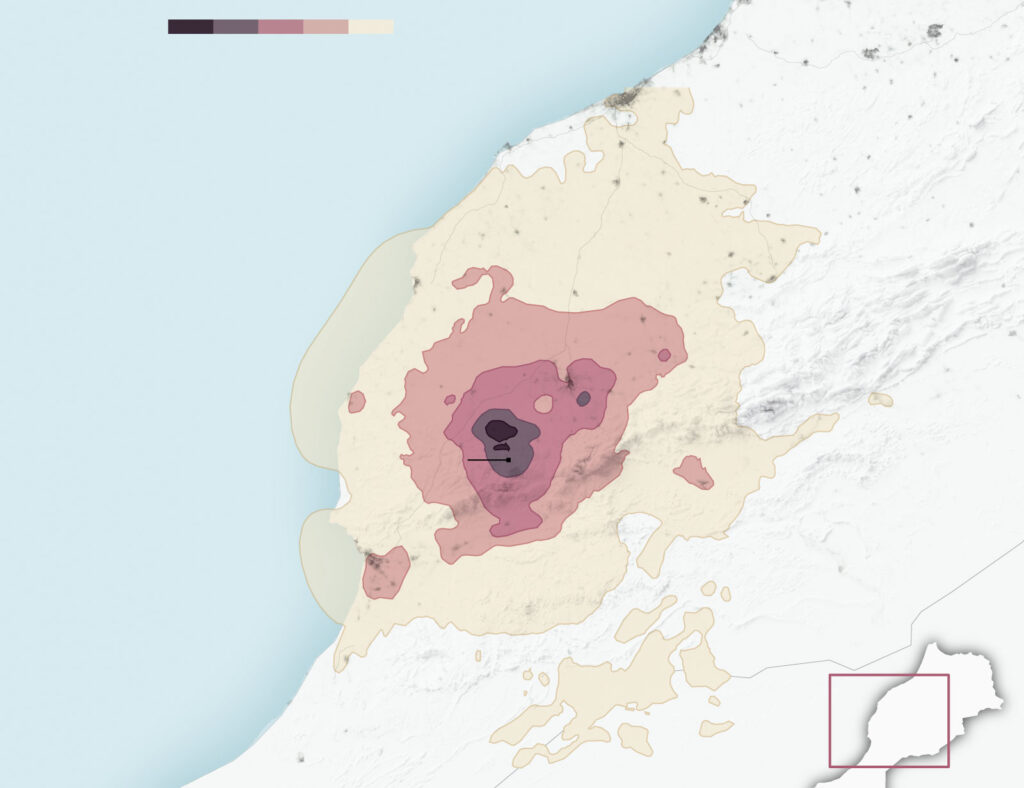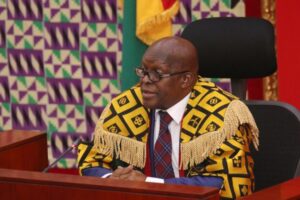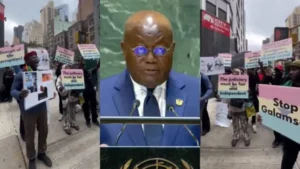
Rescuers were searching for survivors of a powerful earthquake that struck overnight about 50 miles from the city of Marrakesh.
Search and rescue efforts were intensifying on Saturday night, nearly 24 hours after a powerful and deadly earthquake surged across western Morocco, as emergency teams raced to prevent more deaths in remote mountain villages that are not easily accessible.
The quake, which struck in the High Atlas Mountains shortly after 11 p.m. on Friday, has killed more than 1,300 people and raised the specter of a humanitarian disaster in a seismically vulnerable area of Africa.
The office of King Mohammed VI said that he had ordered the government to rapidly provide shelter and rebuild houses for those in distress, “particularly orphans and the vulnerable,†but that certain areas were inaccessible during darkness, preventing rescue workers from reaching them until after dawn on Sunday. The king also did not clarify whether Morocco would formally request foreign assistance to allow outside rescue teams to intervene.
At least 1,305 people were killed, according to Morocco’s Interior Ministry, and at least 1,800 were injured. The quake, which had a magnitude of at least 6.8 according to a preliminary report from the United States Geological Survey, was the strongest to hit the area in more than a century.
“I never felt anything like this in my life,†said Raja Bouri, 33, who lives in the outskirts of Marrakesh. “It felt like a plane fell on me..â€
The temblor was indiscriminate in its demolition, rippling through the densely populated medinas of Marrakesh and the rural villages ringing the city, where walls of earthen homes shook, cracked and collapsed. Some roads have been blocked by landslides, said Sami Fakhouri, the acting head in Morocco of the International Federation of Red Cross and Red Crescent Societies.
Federation of Red Cross and Red Crescent Societies.
Local news media posted images of rubble-strewn streets and footage of people panicking as the shaking began. Some residents returned to their apartments after the quake ended, but many others in areas near the quake’s epicenter, fearful of aftershocks, spent the night sleeping on the streets.
“My husband and four children died,†one woman told Moroccan state television. “Mustapha, Hassan, Ilhem, Ghizlaine, Ilyes. Everything I had is gone. I am all alone.â€
Here’s what to know about the earthquake:
- France, a former colonial power in Morocco, was among the first to offer help. The French Embassy in Morocco opened a crisis hotline and the mayor of the southern French port city of Marseille said that he would send firefighters to help with rescue efforts in Marrakesh, a sister city.
- Several governments and charity groups, including Doctors Without Borders, have offered to send aid and rescue teams. Even countries with a history of conflicted relations with Morocco — like Israel and Algeria — have pledged to provide assistance. Here’s how to help.
- Marrakesh is known for its old city, a UNESCO World Heritage Site that was founded in the 11th century and which attracts tourists with its open-air markets, uneven cobblestone streets and labyrinthine passageways.
- The precise strength of the quake was not yet fully clear. The U.S. Geological Survey estimated it at 6.8. But a Moroccan agency said it measured 7.2., which the U.S.G.S. said could be more accurate. Initial readings of magnitude are measured automatically, and need to be revised by seismologists.
- The deadliest and most destructive earthquake in Morocco’s recent history had a magnitude of 5.8 and killed about 12,000 people in 1960.



